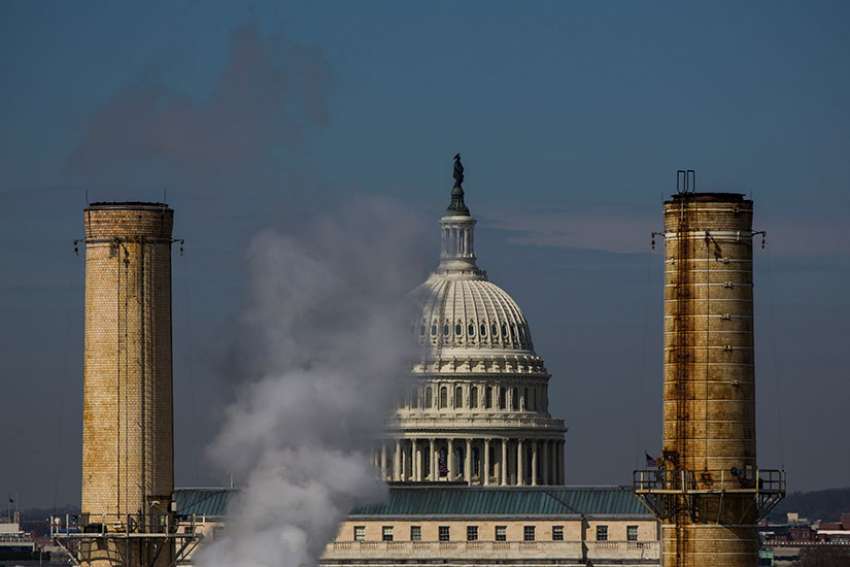The executive order, signed March 28 at the Environmental Protection Agency, fails to offer a "sufficient plan for ensuring proper care for people and creation," Bishop Frank J. Dewane of Venice Florida, chairman of the bishop's Committee on Domestic Justice and Human Development, said in a statement March 29.
Trump, flanked by coal miners, said during the signing ceremony that his goal was to drive energy independence, bring back coal-mining and manufacturing jobs, and reduce the cost of electricity.
Explaining that the U.S. Conference of Catholic Bishops has joined Pope Francis in supporting environmental stewardship and has long called for the U.S. to curtail carbon emissions, Bishop Dewane said the order "means that, sadly, the United States is unlikely to meet its domestic and international mitigation goals."
The USCCB has called for a national climate standard in recent years without supporting any particular economic, technical or political approach.
Archbishop Thomas G. Wenski of Miami, who preceded Bishop Dewane as committee chairman, welcomed the Clean Power Plan when it was introduced in August 2015. He called it "an important step forward to protect the health of all people, especially children, the elderly and poor and vulnerable communities, from harmful pollution and the impacts of climate change."
The plan called for reducing greenhouse gas emissions from power plants by 2030 by about 32 percent from 2005 levels. It set targets for each state to reach. Coal-fired power plants are the nation's largest source of greenhouse gas emissions.
Bishop Dewane suggested that an integral approach involving various components of U.S. society can reduce power plant emissions and still encourage economic growth and protect the environment.
"Many states have already made great progress toward carbon mitigation goals under the CPP, and this momentum ought to be encouraged and not hindered," he said.
In his statement, the bishop cited Pope Francis' encyclical Laudato Si', on Care for Our Common Home," which focuses attention on "the cry of the earth and the cry of the poor."
"With this recent order," Bishop Dewane continued, "the administration risks damage to our air, our waters and, most importantly, our people, particularly the poor and vulnerable, without proposing a concrete and adequate approach to meet our stewardship obligations as a nation."
A Catholic Relief Services official said the agency was "profoundly disappointed" by Trump's action.
"Climate change is hurting agriculture, spreading disease and making natural disasters worse all around the world," Bill O'Keefe, vice president for government relations and advocacy, said in statement March 30. "Refusing to help now will only lead to more conflict, migration and instability, and that is not in the U.S. interest."
O'Keefe also cited Pope Francis' encyclical in calling for humanity to remember its "moral obligation to stop damaging the environment and help those who have been harmed by it."
"Investments in climate resiliency are investments that help small farmers deal with drought and poor villages strengthen their defences to typhoons and floods. These are the people Pope Francis called on us to help," he said.


